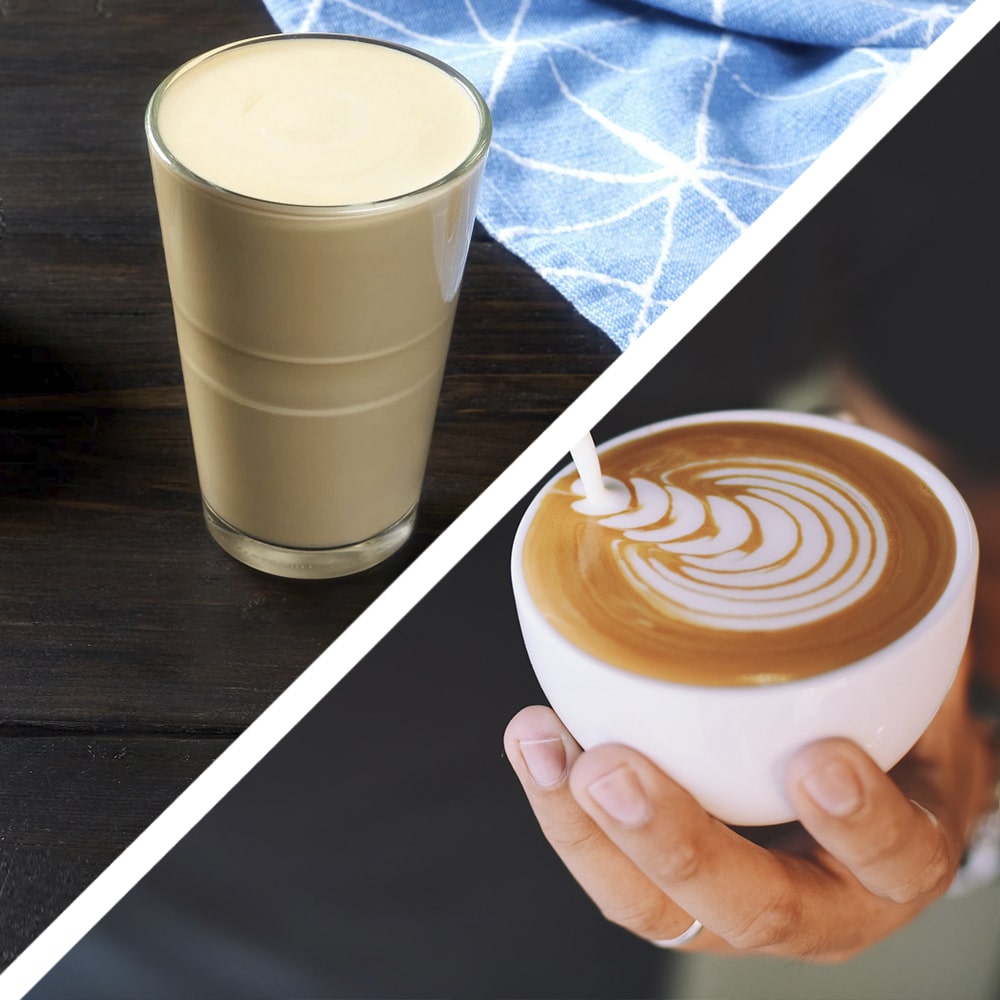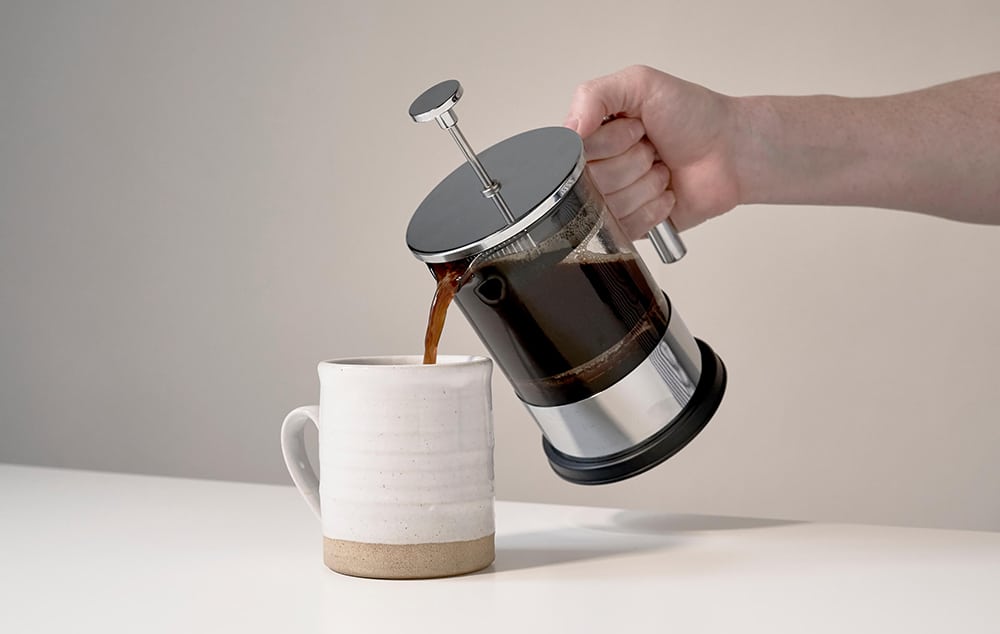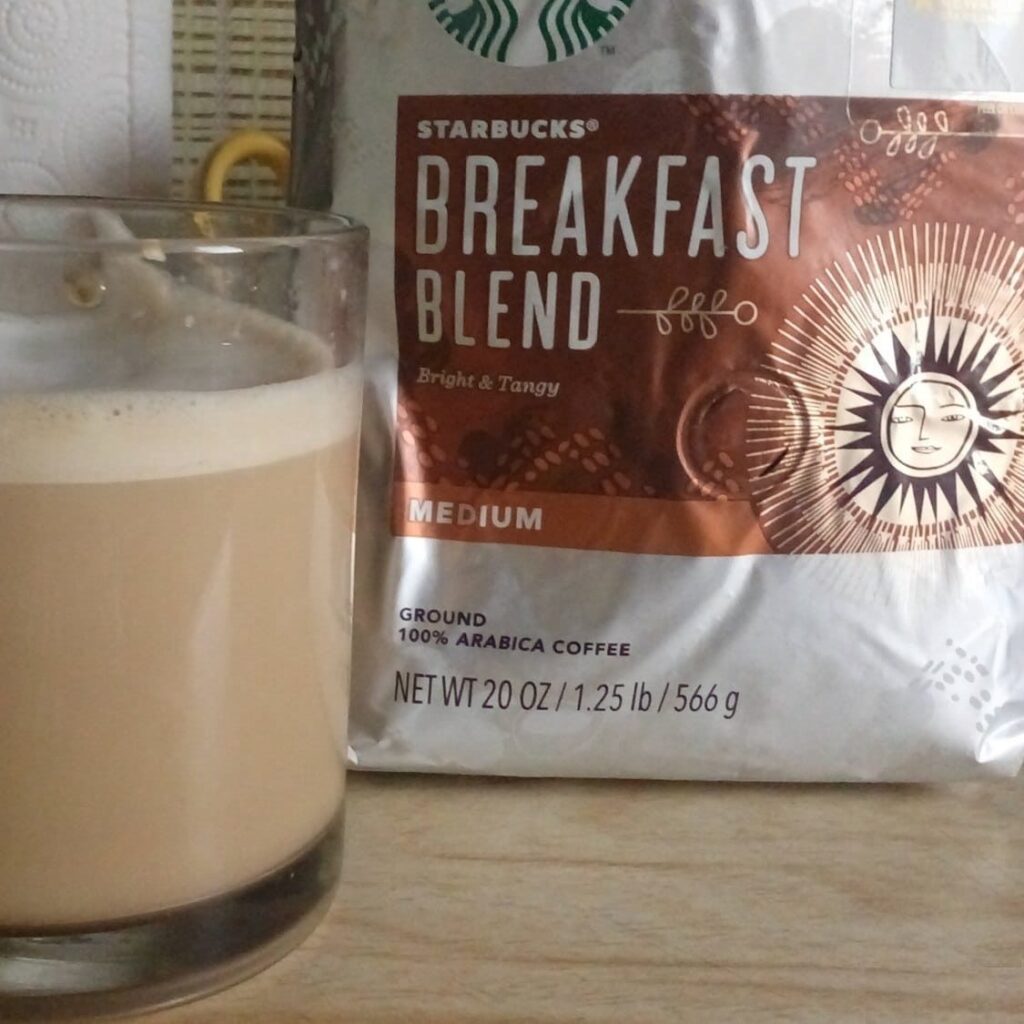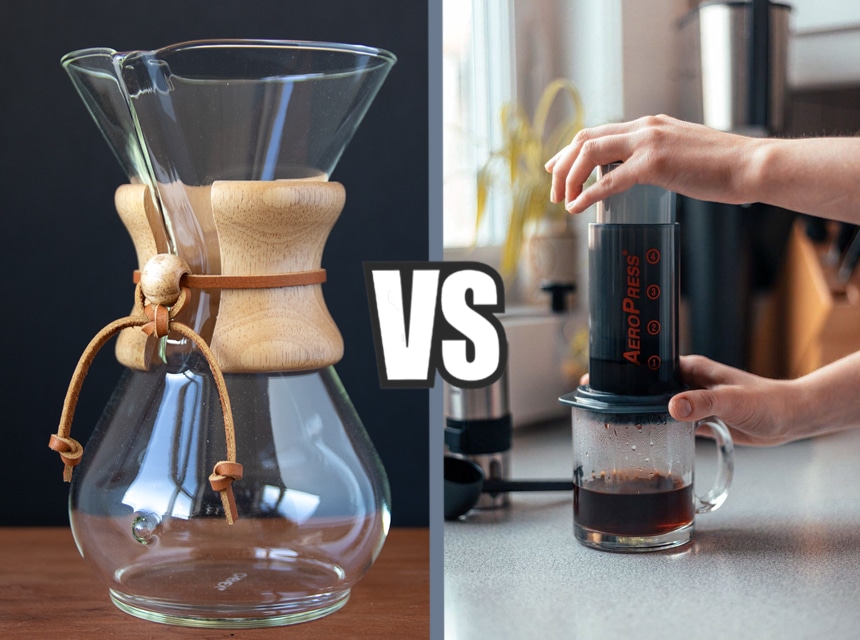

If you’ve ever woken up to a cup of sour coffee, then you know how unpleasant the experience can be. It just messes up your morning and sets a bad mood for the entire day. Unfortunately, sour coffee is a common problem that many people tend to experience every day but you don’t have to suffer the same fate.
In short, sour coffee can be fixed but you’ll need to do the right things. As you’ll soon learn in this article, there are several steps you can take to remedy sour coffee. For example, you’ll need to not rush the brewing process and let the coffee brew properly. Also, you will have to use enough water to ensure that you extract a balanced brew.
Why does my coffee taste sour? What must I do to fix it? These and more will be answered in this article as we explore a wide range of solutions.
With your early morning coffee too sour, it’s not out of place to be frustrated and wonder what makes the flavors bad. If your coffee’s flavors are off, there could be two main culprits; bad beans and bad brewing. Below, we’ll dissect the factors that cause coffee to sour:
Frankly, there’s no need to rush when brewing your coffee. You can’t want a good coffee and not be ready to devote enough time to achieve it. If your brew time is too short, you may find yourself dealing with sour coffee. A long brew usually brings out the flavors that’ll settle the acids and pronounce a sweet spot of flavor. That’s not something you can expect from a short brew.
Not making use of enough water can also make your coffee sour. You have no other choice than to use the right volume of water for each ground. Good coffee-to-water ratio helps you to extract a balanced brew. Otherwise, you’ll be left with under-extracted coffee.
The way your beans are ground is another factor that can cause your coffee to sour. Coarse grounds typically take a long time to extract, thus preventing each particle from getting the needed time for a balanced extraction. The consequence of an unbalanced extraction is usually sour coffee.
If you use the right volume of water, the water temperature could let you down. You will end up with sour coffee if your water is not hot enough to extract the good flavors from the beans.
Stale coffee beans are victims of oxidation and they often have a sharp lemony flavor that’s simply off. If you brew these beans, you’ll end up with sour coffee.
You can do everything properly and still end up with the frustrating question, “why is my coffee sour?” If you can’t blame the common factors for the sourness of your coffee, chances are that the coffee is the Arabica type. This variety is typically light and very fruity. If you’re used to darker roasts, the sharpness of the lighter coffee’s fruity flavors can come across as sour.
Moreover, that doesn’t mean there’s anything wrong with Arabica beans. As a matter of fact, they are great. For example, the Segafredo Massimo Whole Bean—a blend of the best Arabica and Robusta beans—provides a smooth and creamy espresso with hints of chocolate. There’s nothing not to like about the great flavor.
Remember that we told you that sour coffee can be prevented and fixed. Different brewing methods have peculiar solutions. Below, we’ll discuss the solutions that can work for the most common brewing methods:
The classic brew is perhaps the most popular brewing method and it’s not exempted from the issue of sour coffee. If you’re a fan of this method, we’ll provide you with some solutions that can fix your sour coffee problem.
As we mentioned before, coarse grounds don’t extract properly. If that seems to be the cause of your sour coffee, you should change the grind size. Get yourself finer grinds and you can say goodbye to sour coffee.
By now, you know that not getting the coffee-to-water ratio correctly is a problem. Essentially, you must strike a balance between coffee and water. The National Coffee Association of the U.S.A provides an insight Trusted Source How to Brew Coffee The NCA Guide to Brewing Essentials www.ncausa.org to strike the right balance.
According to the association, a general guideline known as the “Golden Ratio” recommends one to two tablespoons of ground coffee for every six ounces of water. Of course, you can adjust the ratio to suit your taste preferences but the adjustment shouldn’t be sharp.
As we mentioned earlier, the short brew can cause problems. The longer the brewing time, the better the extraction process. So, you’ll need to check the brewing time and ensure that you’ve not rushed the process.
Your brewing water must have the right temperature. Typically, the higher the water temperature, the better the extraction. However, the water temperature shouldn’t be too high or you’ll end up with bitter or burned-tasting coffee.
Specialty Coffee Association (SCA) recommends that Trusted Source SCA Certified Home Brewers SCA’s Certified Home Brewer program has long been the recognized mark of excellence when it comes to home brewing machines. scanews.coffee the water temperature must reach 197.6° F and never exceed 204.8° F for optimal extraction.
If you prefer using the Aeropress coffee machine to make your coffee, we’ve got solutions for you too.
You’re going to find this interesting: Turning the Aeropress upside down when brewing coffee can protect you from dealing with a sour drink for the morning. When you invert the Aeropress, water doesn’t drip through the filter until you release it. This automatically leaves more water during the brew’s immersion stage, ensuring that the extraction is perfect.
Another solution for sour Aeropress coffee is changing the grain size. The sourness might be a result of coarse grounds. You can rescue the situation by trying a finer grind size that will ensure rapid extraction.
And we can’t take away the influence of using the right coffee maker. The AeroPress Coffee and Espresso Maker seems like the dream press according to the reviews of several users. Not only does it use a rapid, total immersion brewing process for smooth and full-flavored coffee, but it also boasts a paper microfilter that eliminates grits.
Cold brew coffee is usually not exempted from the sourness. However, it also has certain solutions.
Cold brew can turn sour if you use a lot of water. You can turn the tide by using a higher coffee-to-water ratio. Specifically, you’ll need to brew more coffee with less water. Generally, a 1:5 or 1:4 grounds-to-water ratio is favored for cold brew.
Coarse grounds can be a problem for cold brew too. This grain size is not just good enough for smooth extraction. In this case, you can prevent sour coffee by using a fine grind. Ensure that the grind is fine enough for seamless extraction. Moreover, you’ll do yourself a huge favor if you invest in the best coffee beans for cold brew.
If your French press has consistently produced sour coffee and you can’t find a way to find a solution, we have multiple solutions for you.
Even though French press coffee is typically extracted through the coarse grind, you may still end up with sour coffee if the grind is too coarse. To solve this problem, you’ll need to grind finer. Note that an extremely fine grind is going to clog the mesh filter. So, you shouldn’t grind too fine.
We advise that you experiment with the grind a couple of times and find the perfect level where the grind is fine enough to deliver a balanced brew. Making use of the best coffee grinder for the French press has its way of making life much easier for you.
Your French press can produce sour coffee if the brew time is too short. The solution here is to brew for a longer time, preferably, up to 4 minutes. Try not to brew for too long so that your coffee doesn’t end up having that annoyingly bitter flavor.
If you’ve tried the first two solutions and your French press hasn’t ceased producing sour coffee, the coffee beans might be the problem. A light roast and coarse grind can cause under-extraction and consequently, sour coffee. A dark roast is a better choice for the French press.
If you prepare your coffee using the pour-over brewing method and you still struggle with sour flavor, there are ways you can get rid of the problem.
For the umpteenth time, you should never rush coffee brewing if you want a quality flavor. The simple way to prevent sour coffee for the pour-over method is to increase the brew time. If you make the brew time longer (not too long), you’re poised for a sweet cup of coffee. Besides, getting the best pour-over coffee maker to do the job is definitely a plus.
Your pour-over coffee’s sour taste may be because of a coarse grind. You can hardly escape sour coffee with a coarse grind. The straightforward fix is to change the grind size and make it finer. However, increase the fineness carefully until you get the right balance of flavor.
No doubt, sour coffee is a nightmare that can ruin anyone’s morning. As you now know, the sour taste doesn’t come by accident; certain factors such as bad beans and bad brewing trigger the condition. However, the good thing is these factors are not without solutions. In most cases, the solutions are quite straightforward.
Besides, different brewing methods often require different solutions. For example, the classic brewing method is big on water temperature when it comes to preventing sour coffee. Also, Aeropress’s inverted method solution is unique. Hence, you should try a solution based on the brewing method you’re using. And you should do well to avoid stale beans and bad coffee makers.





